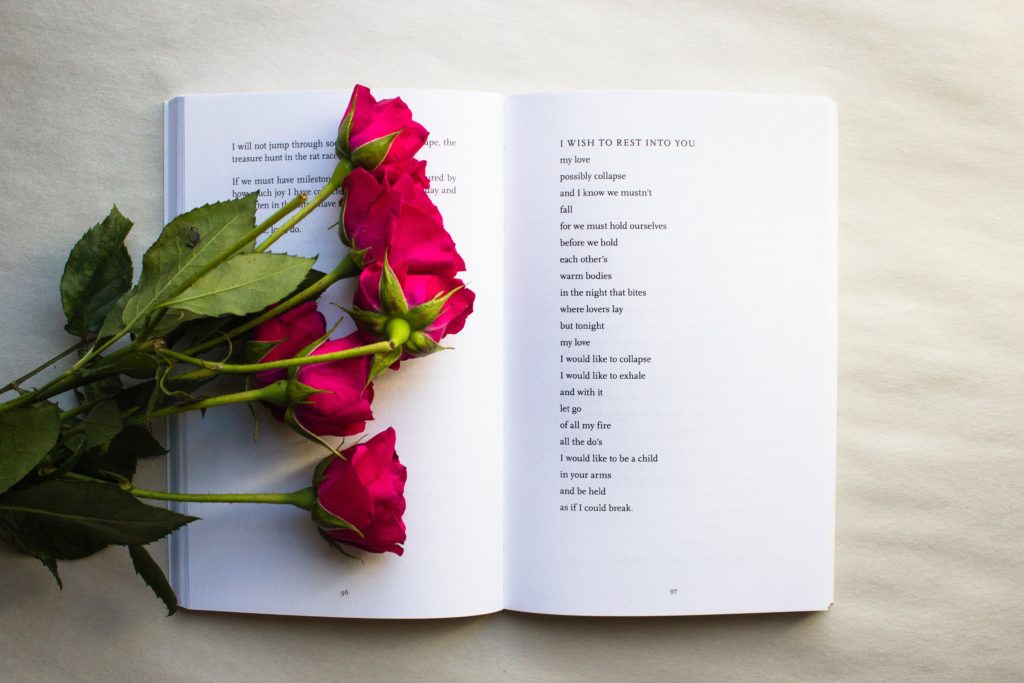Clare Sellers
A tale as old as time, or rather a literary phenomenon as old as time, World Poetry Day, held on 21st March, celebrates the power of words. Often downcast as romantic spiel, poetry is one of the most misunderstood forms of art, neglected by those who view it as the least intellectual version of the written word.
In the UK children are forced to read, memorise, develop an understanding and analyse classic poems by some of the most esteemed poets in our history, but once they have finished their GCSEs they feel quite strongly about never hearing another poem again in their life.
This unfortunate early battle sees that young people turn away from poetry for fear of reliving a stressful time in their lives, when poetry is actually about a calm relation of emotion and feeling, that can be soothing to read and relate.
It has the power to make us feel less alone, more understood, and is so close to musical lyrics with its rhyme that one often doesn’t realise the length of it. So, poetry can be read at a much faster rate than most literature.
If you’re wondering where to begin, I may suggest some poets that have always resonated with me. There are the classics that you may have heard of from those dreaded high school English literature classes: John Keats, William Wordsworth, Maya Angelou, and Emily Dickinson.
However, I can understand if you wish to escape the old words you were forced to recall and recite for exams. And so, I offer some modern-day favourites that write so beautifully, no one could be persuaded to group them with past trauma established by their former inspirations.
Short lines on love, heartbreak and womanhood inspire and empower those who read them.
Rupi Kaur first comes to mind, infamous for her poetry collections named milk and honey, the sun and her flowers, and home body. Short lines on love, heartbreak and womanhood inspire and empower those who read them, striking them with thoughts of finally having something to relate to.
I must also recommend Beau Taplin, who has written one of my most favourite poetry collections Here at Dawn. He enthuses self love, self reflection, and allows the reader a view of the world that brightens and enlightens their idea of it.
Aside from reading poetry, writing poetry can be a creative outlet for emotions and feelings that are too difficult to articulate in spontaneous verbal words. Understandably, writing any form of literature can be rather tricky, so I have gathered some tips to aid any budding poets among us.
The first step in learning to write poetry, is to take part in the aforementioned reading of poetry. Only after devouring a considerable number of poems can a person be expected to know the language and types of poetry, and be able enough to try it themselves.
The most important element in writing poetry is to be brave.
Keeping a journal can help artists, old and new, to brainstorm ideas and organise thoughts. This will help them figure out their writing style and the theme of poetry they would do best to entertain. Deciding to keep this with you as regularly as possible will allow you to scribble down spontaneous thoughts that could spur into a lovely poem when it is all done.
Sharing your work is one of the best possible ways to perfect your poetry. Allowing others to read and digest the poems would give a sense of how readers will engage and relate to them, whilst allowing other poets and literary minds to grant constructive advice that will better your writing in the future.
The most important element in writing poetry is to be brave. Poems that lack feeling, real emotion, or true sentiments will never become successful, because no one can relate to them.
It pays to be brave, if you have enough courage to write in a real earnest sense, then poetry could be a beneficial and successful hobby for you.
Featured image courtesy of Thought Catalog via Unsplash. Image licence found here. No changes were made to the image.

